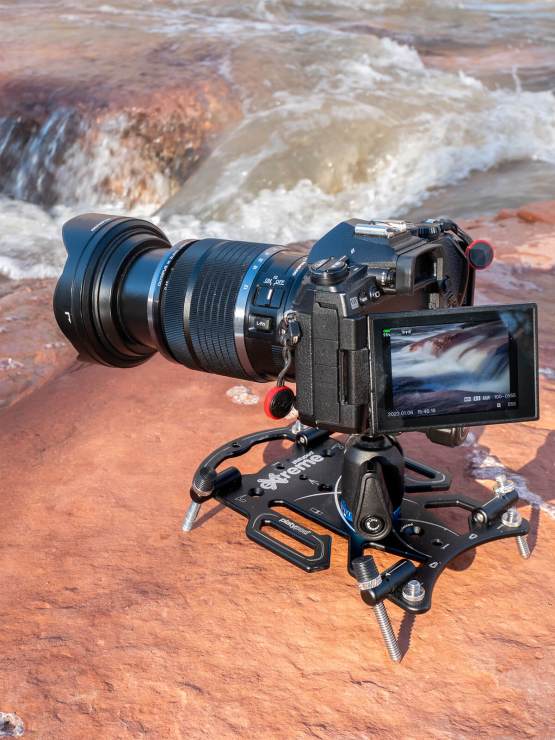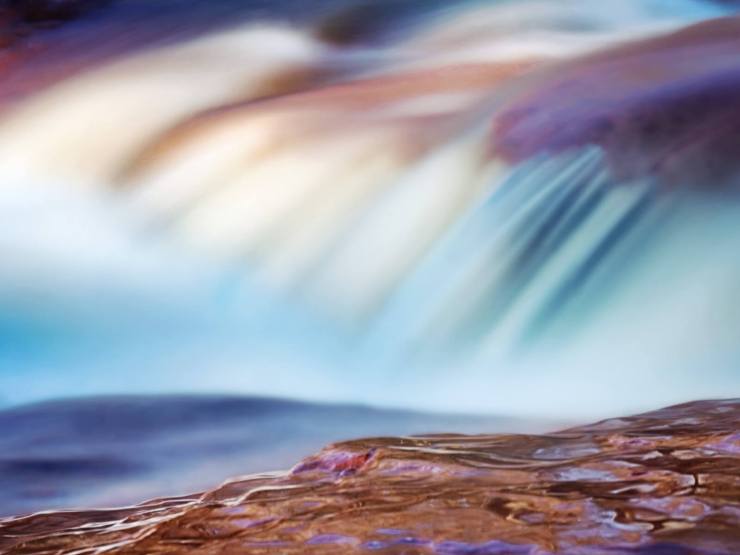When photographing in bright light it can be difficult to get that ‘flowy look’ water. Here are some slow exposure techniques to help you get there.
Camera settings
The first thing to do is to get your camera settings to give you the slowest shutter speed possible. That includes lowering the ISO to the smallest setting. Next, a small aperture makes it take longer for light to reach the sensor. You can also get a little less shutter speed by bracketing the exposure and adjust it in post to get the proper viewing exposure. When these settings are not enough to give you smooth water, there’s more you can do.
Angle of view
You can get more apparent motion by where you are in relation to the flow of the water. Get perpendicular. Making your composition move across the flow will show more movement. Conversely, when there’s not enough detail and the water is reading too smooth you can experiment with different angles either up or downstream.
Get low and close
Being closer to your subject can help make the flow appear faster and therefore more milky and smooth. I use Platypod products to get closer to my subjects. I find the Platypod eXtreme to be easiest to deploy quickly due to built in foldable legs. (Full disclosure: I am a Platypod Ambassador.)

Neutral density filters
Neutral density filters are the next line of demarcation in the quest for an artistic flowing look. These filters will decrease the amount of light allowed to make it to the sensor. ND filters comes in different sensitivities and can be stacked to allow even less light in for totally different effects. You can experiment by stacking multiple filters to limit light even more. Remember to play and experiment to get the look you wish for.

Olympus alternative
Another possibility is computational camera settings. Newer Olympus cameras have a Live ND Shooting Mode. My OM-D E-M1 Mark III has in-camera ND filter settings. For this image I dialed in an ND32 (5EV) setting. Using this feature in the camera gives more creative possibilities while keeping the equipment load down to a dull roar.
Yours in Creative Photography, Bob
Tell your story with the second annual Visual Storytelling Conference!
Experience four days of interactive, online training sessions featuring a range of educational content with experienced photographers and content creators. This free event kicks off with a series of technical boot camps to build essential skills, followed by live, online sessions on photography, video, business and social media. Join live from March 10-13, 2022!
